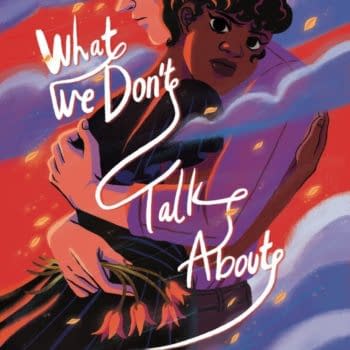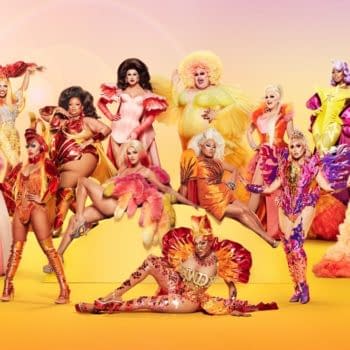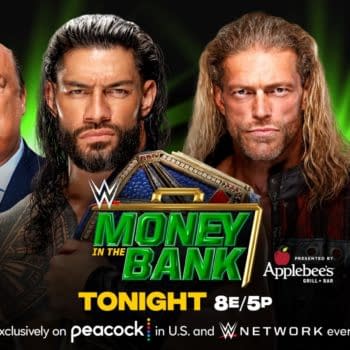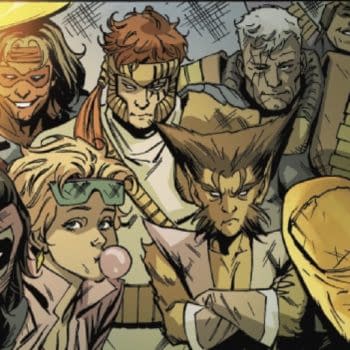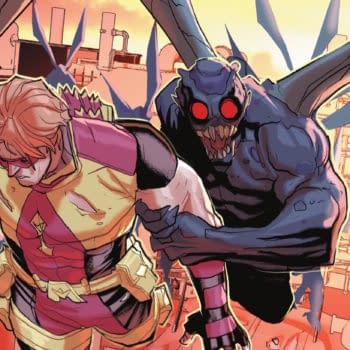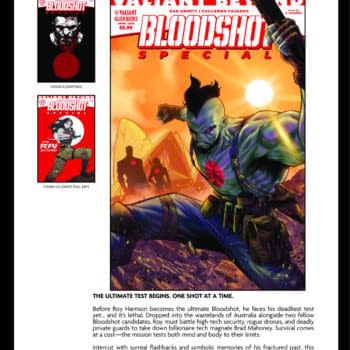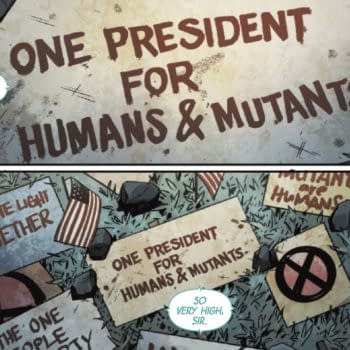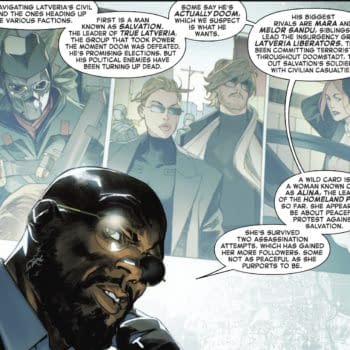Posted in: Comics, Comics Publishers, Dark Horse Comics | Tagged: Comics, dark horse comics, The Legend of Korra
Legend of Korra: Turf War Continues the Avatar's LGBTQ+ Representation
When The Legend of Korra ended in 2014, fans watched as the two protagonists walked hand in hand into the spirit portal. Although there was a certain level of ambiguity in their relationship, show creators confirmed once the series concluded that Korra and Asami were absolutely a couple, in a move that gave LGBTQ+ fans some exposure to representation with two well rounded main characters. Picking up immediately where the series left off, The Legend of Korra's co-creator Michael Dante DiMartino wrote in the foreword that he wanted to "balance the fun and romance of Korra and Asami's relationship with their personal strife."
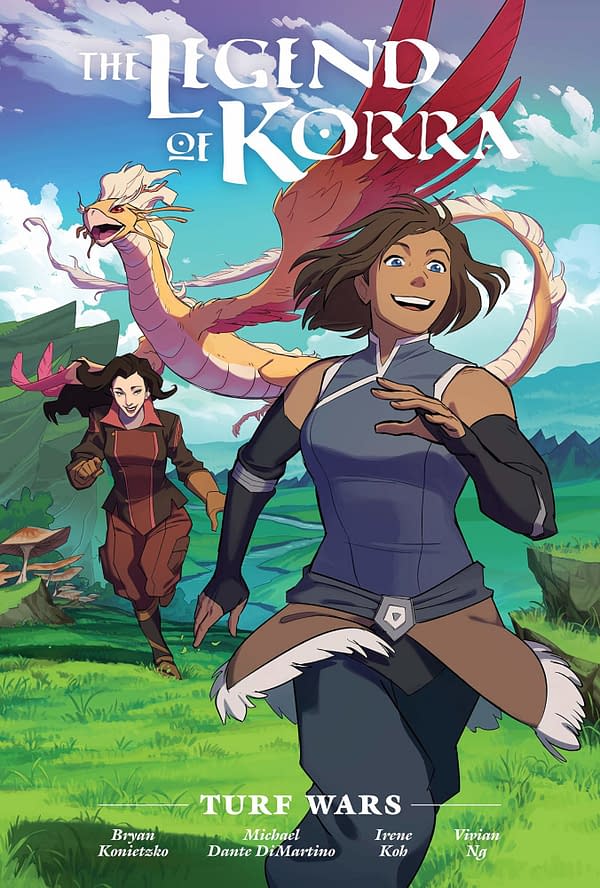
One thing that was never fully addressed in the Avatar universe was how queer individuals were represented and treated in the realms of the four elemental kingdoms. Bryan Konietzko, the other half of The Legend of Korra creative force, agreed that a demonstration of this representation was important for fans of the Avatar universe. DiMartino went on to write that by showing a positive rendering of a queer female character, that it "can literally change a person's life."
The Avatar Universe has never shied away from non-traditional couplings even with its series stars. As shown in The Legend of Korra, Toph's children struggle with their mother as they have different (and unknown) fathers. Even beloved Avatar Aang left his own scars on his children, with Bumi and Kya harboring deep-seated resentment towards their father over his favoritism of Airbender son, Tenzin. Humanizing characters with believable traits is what has perhaps been the best part of the Avatar's legacy. Even the first step in Korra and Asami's relationship is coming out to close family members, with Korra's father expressing concern at their openness and fear of retaliation against his daughter for her sexual identity.
This initial reaction from Korra's father created enough doubt in Asami that she inevitably chooses not to publicly appear with the Avatar in fear that it will change the way people view her. In a surprising realization, Aang's daughter Kya also comes out to the Avatar, revealing she kept her sexual orientation private for the same reasons Korra is experiencing. In this disclosure, readers see for the first time a cultural difference in the four kingdoms when it comes to sexual orientation: Aang was supportive because air nomads practiced more sexual fluidity, whereas the water tribes did not. Furthermore, she tells Korra that Fire Lord Sozin outlawed same-sex relationships, whereas Avatar Kyoshi is described as bisexual for the first time in Avatar cannon.
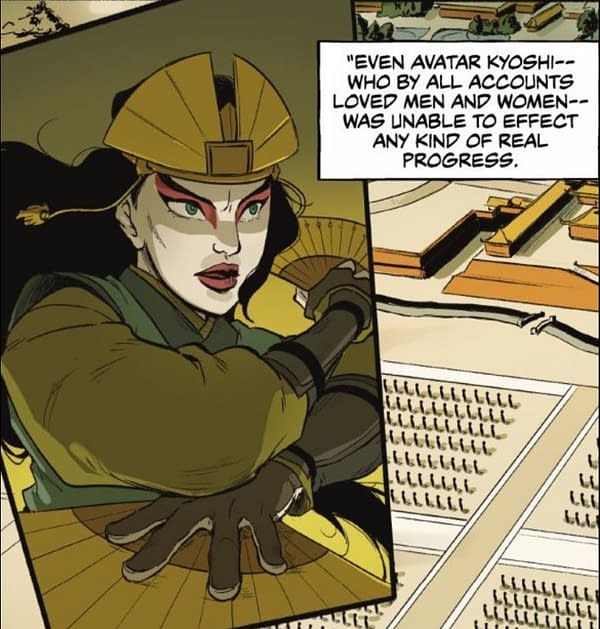
Actually, the most realistic portrayal of Asami and Korra's relationship is that it is no different from any other consensual pairing out there. DiMartino and Konietzko successfully showed a mutually respectful and normal couple in Turf Wars that it's almost hard to believe this series initially picked up in April of 2012 and wasn't a response to the current political status quo. For Avatar fans seeking more than a story about the Avatar's relationship, Turf Wars has this too. It successfully shows the consternation between the spirits and shady businessmen, Mako, and Bolin's adventures with the police, and most importantly, it continues the story in a universe that we all need more of. Ultimately, the Legend of Korra is just as important now as it ever has been and is well worth the read.


